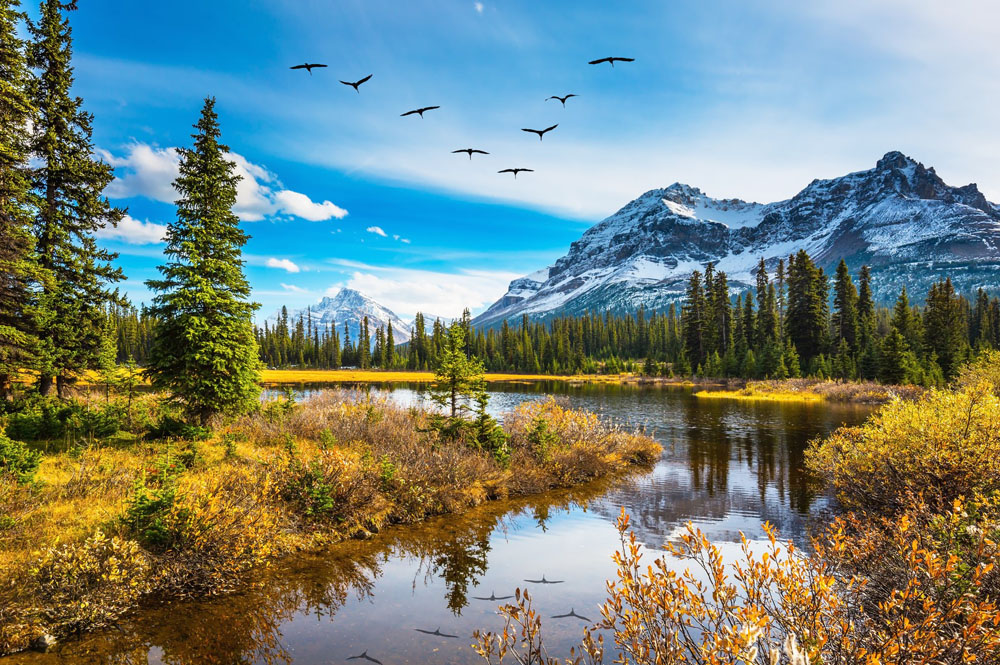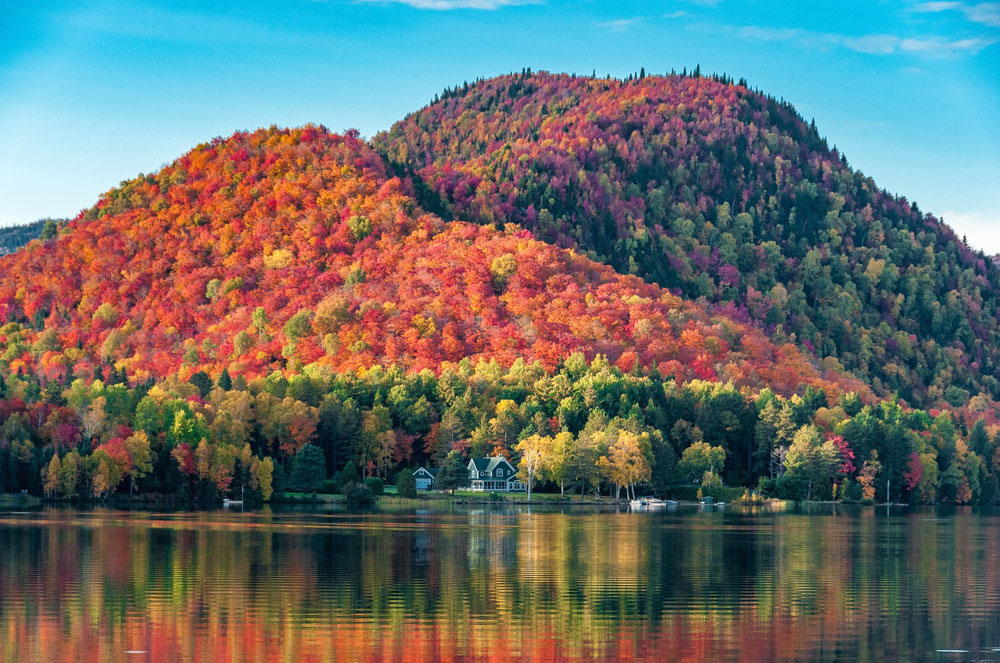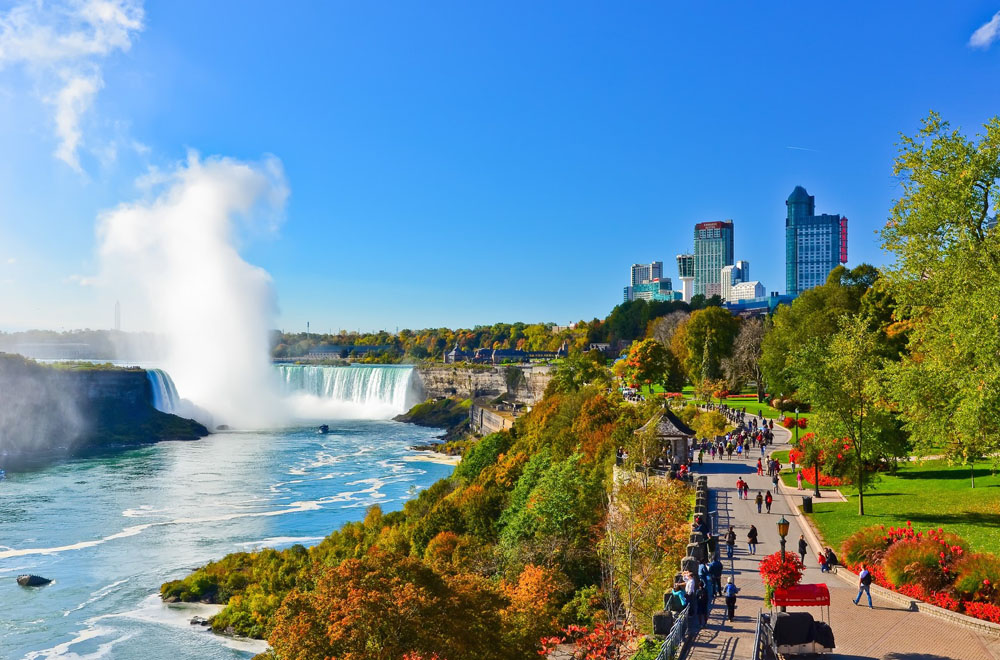French language study trip to Canada
Fancy a combination of adventure and language learning? Then Canada is the right place for you. The country offers everything your heart desires and language stays become an experience. The Canadian wilderness is breathtaking: forests and fields on a scale that we Europeans are not used to. Nature parks larger than Switzerland are full of bears, wolves and moose. If you like lots of action in addition to your language course, Canada is the right place for you, because whether fishing, kayaking, cycling tours, hiking or sightseeing, the land of maple syrup is full of surprises.
With one million square kilometers and around 36 million inhabitants, Canada is one of the least densely populated areas in the world with only 3.6 people per square kilometer. By comparison, Switzerland has 203 inhabitants per square kilometer.
Country, cities and regions
As Canada is bilingual, you have to limit yourself to the province of Quebec for a French language study trip. However, the cities of Montreal and Quebec in this region are two cosmopolitan cities with an excellent reputation. There are other smaller parts of Canada where French is spoken. These would be areas in Alberta, Ontario, New Brunswick, Nova Scotia and southern Manitoba.
There is a good bus system for visiting other cities such as Ottawa or Toronto. This means you can take city trips at any time at a fair price. As the distances in the interior of the country are very long, you can also book domestic flights. A trip to the USA is also perfectly realistic and feasible.

Itinerary
As Canada is not just around the corner, you have to travel by plane. The flight takes around 8 hours. Language study trips in Canada should therefore last at least two or three weeks so that you can really benefit from them and, in addition to French lessons, also visit the country and experience something. There are various direct flights from Zurich to Montreal every day. Prices range from 600 to 1500 francs, depending on the season. The time difference to Central European Time is minus 6 hours.

Weather and climate
Most of Canada is characterized by a boreal climate with long, cold winters and short, hot summers. Further north, the summers get shorter and shorter. However, as all French-speaking parts of Canada are in the south, you can expect beautiful, hot summers. The best time to visit is between June and September. In July and August, temperatures are high throughout the country and at the end of September and in October, the Indian summer delights visitors with beautiful fire colors in the maple forests so typical of Canada.
Language schools
There are various providers of language courses. You can choose between intensive language courses with up to 35 lessons per week, standard courses with 20 lessons per week or individual lessons with 10 lessons per week. Courses are available from 1 - 48 weeks, although at this distance it makes sense to take at least three weeks of language courses. Be sure to compare the different offers and choose the right course to suit your needs. The certified language courses in particular, which are completed with a diploma, are very popular and it is definitely worth enrolling early.

Entry
As a Swiss citizen, you can also enter Canada without a visa for a language study trip. However, a biometric passport is required for entry. You must also complete the eTA form at least 78 hours before departure, which costs 7 Canadian dollars. Here is the link:https://www.canada.ca/en/immigration-refugees-citizenship/services/visit-canada/eta/apply.html
It should also be noted that visas are required for stays of 3 months or longer, so it is essential to consult the Canadian Embassy in Geneva before departure.
Security
The situation in Canada is very stable. As usual, you should watch out for pickpockets in large cities. There is also a moderate risk of terrorism. What many people underestimate when planning routes for domestic trips, however, are the immense distances between cities. If you are traveling by rental car, you should therefore always keep an eye on the fuel level and always find out where the nearest petrol station is. Especially in the hot summer months, you should always carry enough water with you during road trips and hikes.

Costs
The costs for the language courses range between 300 and 4300 francs, depending on the number and type of lessons and weeks. Depending on the school, a seasonal surcharge may apply in summer. However, even then the prices are average. There is also the cost of accommodation. You can expect to pay an additional CHF 300 per week with a host family in a single room with half board. As always, anyone planning a language study trip should inform themselves well and choose the right language school according to their needs.
